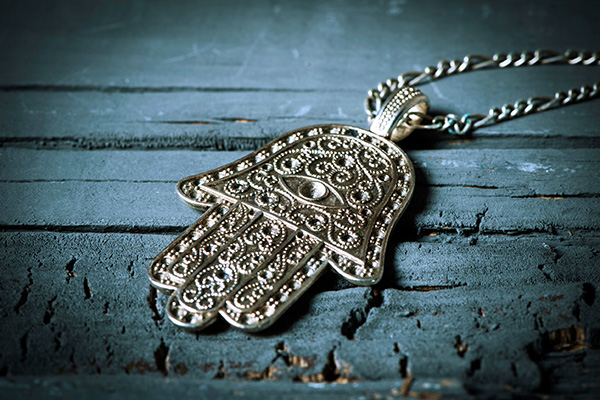salvation
Letting Go Of Guilt
 We all like to be seen as good people, and it can be deeply unsettling when others perceive us otherwise. When we find ourselves in a disagreement with a dear friend or colleague and take the blame for something we’re not responsible for, it’s natural to feel unhappy.
We all like to be seen as good people, and it can be deeply unsettling when others perceive us otherwise. When we find ourselves in a disagreement with a dear friend or colleague and take the blame for something we’re not responsible for, it’s natural to feel unhappy.
Spirit teaches that while it’s important to own our actions and the roles we play in conflict, guilt only serves to amplify feelings of remorse. If we allow guilt to fester, we may begin to believe that we are “bad” people who do not deserve happiness and success.
This is far from the truth. We are human, and human beings have the ability to change. Our actions may not always be right, but that doesn’t mean we are inherently bad or deserving of punishment.
Making mistakes is part of being human, and sometimes we need to adjust our responses, especially in challenging situations, in order to grow and improve. Spirit suggests that this is a much healthier perspective.
However, taking this “healthy approach” is often easier said than done. We’ve grown up in a world where elders, peers, and society define what is good and bad – even when they’re not always right. This can lead us to judge ourselves harshly and feel unnecessary guilt.
Many traditional spiritual teachings emphasize the importance of forgiveness, both of oneself and of others. In Christianity, for example, the concept of repentance is central; believers are encouraged to confess their sins, seek divine forgiveness, and then release their guilt, trusting that God’s grace has absolved them.
The Mystical Symbolism Of The Hamsa
 The well-known Hamsa symbol has a rich tapestry of esoteric meaning that spans several cultures and religious traditions, including Islam, Judaism, and Christianity. It is commonly used as a protective amulet, offering protection from the evil eye, as well as a talisman or good luck charm, bringing its wearer blessings in the form of happiness, health, and fortune.
The well-known Hamsa symbol has a rich tapestry of esoteric meaning that spans several cultures and religious traditions, including Islam, Judaism, and Christianity. It is commonly used as a protective amulet, offering protection from the evil eye, as well as a talisman or good luck charm, bringing its wearer blessings in the form of happiness, health, and fortune.
The Hamsa is also known as the Khamsa, Hamesh, the Hand of Fatima, the Hand of Miriam, or the Hand of Mary. The names “Hamsa” and “Khamsa” both refer to the number five in Arabic while “Hamesh” means five in Hewbrew, all symbolizing the five fingers of the hand.
In Islamic tradition, this famous esoteric hand is named after Fatima al-Zahra, the youngest daughter of the Prophet Muhammad and his first wife Khadija. Fatima is known by many titles in Islamic tradition, of which al-Zahra (meaning “the Radiant One”) is one of the most prominent. Her life, devotion to family and faith, and moral integrity are admired and serve as an inspiration to Muslims around the world.
In Jewish culture, the hand symbol is named after Miriam, the sister of Moses and Aaron, who was a prophetess and is an important figure in Judaism. In some Christian contexts, it is also known as the Hand of Mary, although it is less commonly referred to by this name. In this instance it is associated with Mary, the mother of Jesus, who is revered for her purity, grace, and maternal protection.
Overcoming The Trials Of Spiritual Transformation
 Major setbacks and challenges in our lives can lead to a ‘crisis in faith.’ However, as much as they may seem like unjust setbacks, they’re actually about transcending major hurdles for the purpose of spiritual growth. In truth, these moments of adversity are evidence of an impending, giant step forward within our emerging consciousness. Cherish them.
Major setbacks and challenges in our lives can lead to a ‘crisis in faith.’ However, as much as they may seem like unjust setbacks, they’re actually about transcending major hurdles for the purpose of spiritual growth. In truth, these moments of adversity are evidence of an impending, giant step forward within our emerging consciousness. Cherish them.
For those of us who guide others coming into their spiritual power, it is important to understand the significance of these signs, so as to not misinterpret them. That said, it’s not easy for those undergoing these symptoms, which can include feelings of being in limbo, doubtful and depressed, often creating rifts with family and friends. All of these signposts are marking the path for spiritual transformation in the now. For example, if you catch yourself having moments of letting go consciously of self-limiting negativities, that is letting you know that you’re right on track. Honor them.
It’s not unusual for an emerging lightworker to suddenly let go of family and friends whom they no longer resonate with, or to undergo a career change which formerly would have been inconceivable. One becomes less concerned with matters of everyday security, often feeling that the cultural values we have been taught are nothing but an illusion. Or, some may feel they are in mourning, as though something or someone has died – which is a actually an apt description. Indeed, it’s a death of priorities and loss of all meaningless ties. As a result, it’s not a loss at all. Rather, it’s marking the path of self-sufficiency.
For me, it often goes something like this: “Hmmm, I’m feeling a bit restless. Is there something I should be pursuing? Is there a calling I’m missing?” The answer usually comes as I wait on more information with intention. I call it WOO: Waiting On Orders. Although the ‘orders’ may not come immediately, sooner or later, I am back on my path in the direction indicated by the objectives my higher good is setting out for my next challenge in the spiritual growth process. Be aware of them.
